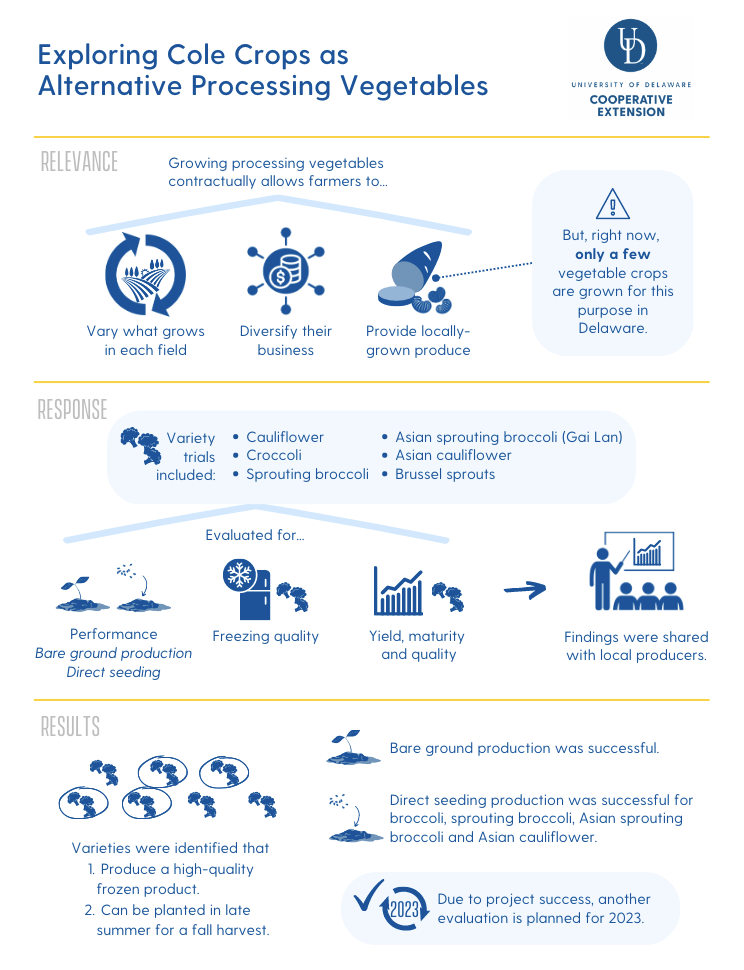
Exploring Cole Crops as Alternative Processing Vegetables (2022)

Exploring Cole Crops as Alternative Processing Vegetables

RELEVANCE
Processing vegetables—grown or sold to be made into food products—are usually grown contractually. This practice allows farmers to vary what grows in their fields and diversify their farm businesses. It also gives consumers access to convenient, locally-grown produce. Today, only a few vegetable crops are grown for processing in Delaware and introducing new popular processing crops, like cauliflower and brussels sprouts, would benefit growers, processors and consumers alike.
RESPONSE
In 2021 and 2022, the UD Extension Vegetable and Fruit Program conducted trials of cauliflower, broccoli, sprouting broccoli, Asian sprouting broccoli (Gai Lan) and Asian cauliflower. Additionally, a Brussels sprouts trial was conducted in 2022.
These trials tested each vegetable’s performance in a large-scale processing production system and evaluated its freezing quality. The two growing systems tested included bare ground production (except Brussels sprouts) and direct seeding (except cauliflower and Brussels sprouts). Samples of each variety were blanched and frozen for later evaluation by quality experts from a collaborating processing company. Evaluation of the 2021 samples was attended by six quality and product development experts.
The results, including yield, maturity and quality information, have been shared with local growers and processors through written reports and oral presentations.
RESULTS
The UD Extension Vegetable team identified varieties of cauliflower, broccoli, sprouting broccoli, Asian sprouting broccoli and Asian cauliflower that will produce a high-quality frozen product when planted in late summer for a fall harvest. The lower input, bare ground production system was successful (as opposed to the plastic mulch system sometimes used for fresh market production) and direct seeding was successful for broccoli, sprouting broccoli, Asian sprouting broccoli and Asian cauliflower.
The participants in the frozen product evaluation were excited by the appearance and product potential of the crops and were interested in directly comparing quality differences between varieties that they already process (cauliflower and broccoli). Due to the positive feedback, another evaluation is planned for 2023, using samples frozen in fall 2022.
PUBLIC VALUE STATEMENT
Identifying new processing vegetable crops helps Delaware growers vary their field management and diversify their farm business and provides end consumers with more and better varieties of food.
FUNDING SOURCE / ACKNOWLEDGEMENTS
Sample evaluation was attended by six quality and product development experts from Hanover Foods. This project was funded by a Specialty Crop Block Grant administered by the Delaware Department of Agriculture titled “Research on New and Reemerging Vegetables for Processing in Delaware.”
